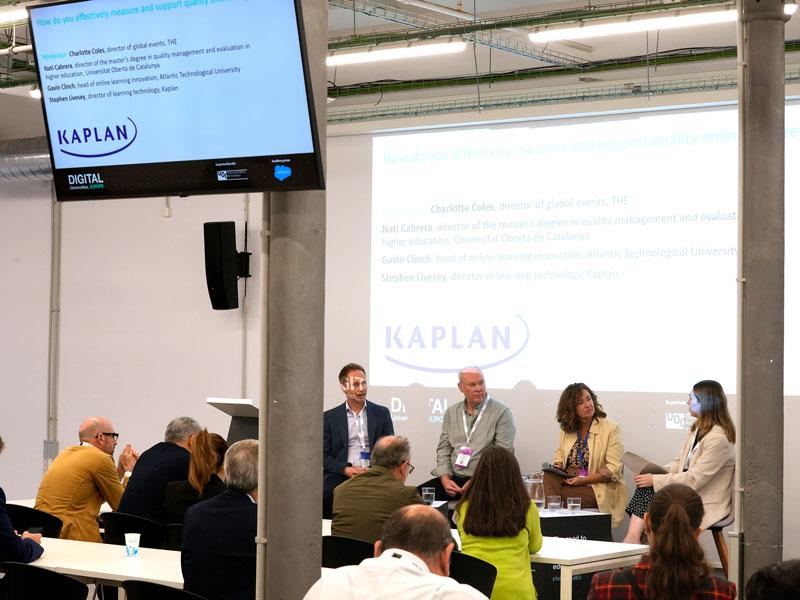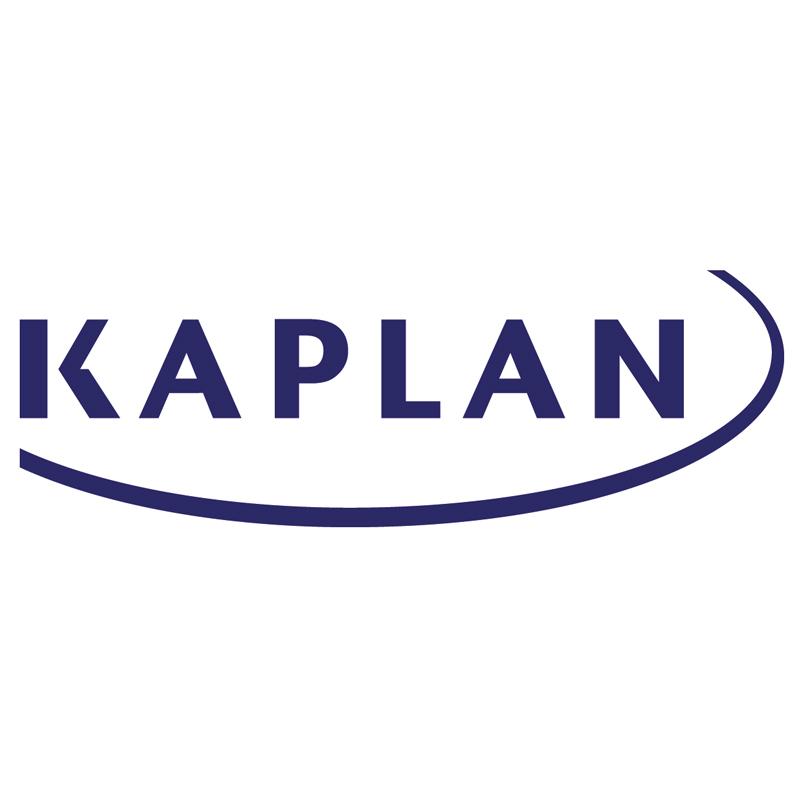
How benchmarking online learning serves both students and institutions

No universal approach to supporting and measuring online degree programmes exists but if it did, it would come with great benefits, according to a panel discussion at the 2023 THE Digital Universities Europe event, held in partnership with Kaplan.
Developing rankings for online teaching is important for two reasons, explained Stephen Livesey, director of learning technology at Kaplan. It helps students make informed decisions about where they choose to study, and consistent benchmarking also allows institutions to better understand how their offering compares with others in the market. “It’s very difficult for us to benchmark against other online providers because we don’t necessarily have like-for-like data to compare,” Livesey said.
Institutions often gather data for internal use but don’t share it with other institutions, Livesey said. However, benchmarking metrics such as retention, student satisfaction and outcomes against other institutions could encourage them to share best practice and improve their performance.
Nati Cabrera, director of the master’s degree in quality management and evaluation in higher education at the Open University of Catalonia, agreed there was a need for a collective approach but highlighted the potential for difficulties in reaching a universal agreement on quality metrics. Differences between context and countries give a variety of perspectives, she said.
Even the definition of an online programme varies, said Gavin Clinch, head of online learning innovation at Atlantic Technological University. He explained that there are more than 60 definitions of online learning for educators to contend with.
Livesey said that online programmes offer the agility to produce courses quickly and deliver them to a wide portfolio of students. Most students who learn online do so because of the flexibility it offers, Cabrera said. The chance to further personalise the learning experience meets this demand for flexibility.
Microcredentials are perfectly placed for this agile approach to teaching, and Clinch predicted that microcredentials will become the preferred method for cohorts who are upskilling in industry. “We work a lot with industry partners, and we have bespoke programmes that we then develop further to bring in a wider audience,” Clinch said.
Online learning makes internationalisation far easier, and this is crucial to Kaplan’s programmes, Livesey said: “Students are based all over the world from all sorts of backgrounds, professionally and culturally. They bring that to the online programmes and we facilitate those conversations.”
Attracting international learners to courses would be helped by establishing rankings and quality metrics, Clinch said. However, before that is possible, “a lot of groundwork” needs to be laid, he added. If developed, such measures would be useful tools to make online education more visible and improve its reputation and recognition with employers, and society more broadly, Cabrera said.
The panel agreed that online learning in higher education requires some developments to reach its full potential, such as reaching a broader student demographic, offering greater learning flexibility, encouraging pedagogical innovation, broadening the limits of technology and diversifying learning channels.
The panel:
- Nati Cabrera, director of the master’s degree in quality management and evaluation in higher education, Open University of Catalonia
- Gavin Clinch, head of online learning innovation, Atlantic Technological University
- Charlotte Coles, director of global events, Times Higher Education (chair)
- Stephen Livesey, director of learning technology, Kaplan Open Learning
Find out more about Kaplan International Pathways.

